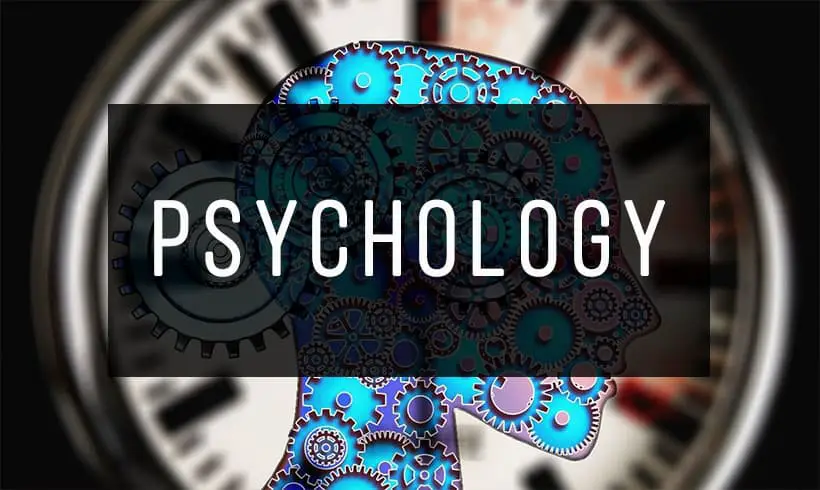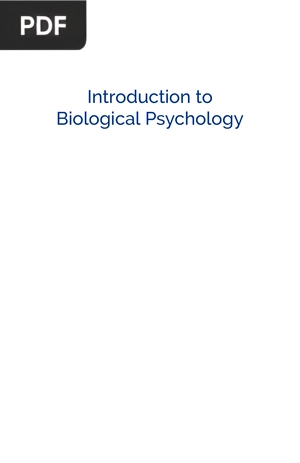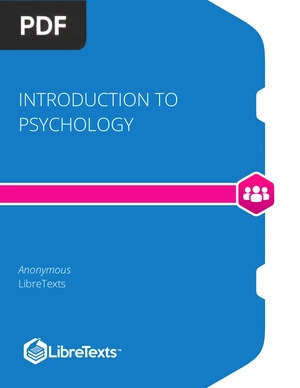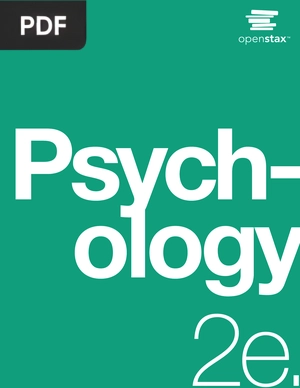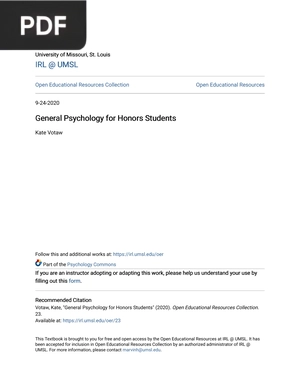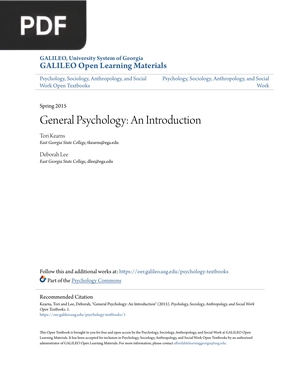Welcome, psychology lover! Here you’ll find an amazing selection of psychology books to read and download for free.
Prepare to explore psychology by delving into the minds of great authors and discovering everything from classic theories to the latest findings, covering a wide range of topics and perspectives.
Our goal is to provide easy access to quality psychology information, which is why we ensure that all our books are available for free download in PDF format.
Looking for books on clinical, social, cognitive, or developmental psychology? Don’t worry, you’ll find all branches of psychology here!
Don’t wait any longer and start exploring our extensive library of psychology books available for free download. We’re confident you’ll find captivating titles that will help you grow as a person and a professional.
Outstanding Psychology Books
#1 A General Introduction to Psychoanalysis
Extension: PDF | 407 pages
A General Introduction to Psychoanalysis by Sigmund Freud is an elementary yet comprehensive text discussing the fundamentals of psychoanalysis and its impact on various fields.
#2 The Interpretation of Dreams
Extension: PDF | 532 pages
The Interpretation of Dreams by Sigmund Freud is a seminal work exploring dream interpretation, laying the foundation for psychoanalytic theory.
#3 Biological Psychology
Extension: PDF | 612 pages
Biological Psychology, is a revised edition providing in-depth insights into the intersection of biology and psychology, essential for understanding human behavior.
#4 Psychology of Language
Extension: PDF | 241 pages
Psychology of Language is an in-depth exploration of psycholinguistics, covering language development, bilingualism, and more.
#5 Introduction to Biological Psychology
Extension: PDF | 834 pages
Introduction to Biological Psychology is an overview of key topics in biological psychology, exploring brain functions, neural communication, sensory perception, behavior, and neurological disorders.
#6 Introduction to Psychology
Extension: PDF | 473 pages
Introduction to Psychology is a comprehensive introduction to psychology, covering various topics from the science of psychology to psychological disorders and treatments.
#7 Psychology – 2e
Extension: PDF | 753 pages
Psychology - 2e is an introductory textbook on psychology, covering various topics like research, biopsychology, consciousness, sensation, perception, learning, memory, and more.
#8 Cognitive Psychology
Extension: PDF | 274 pages
Cognitive Psychology, is an overview of cognitive psychology, exploring topics like memory, problem-solving, creativity, reasoning, decision-making, perception, and attention.
#9 General Psychology for Honors Students
Extension: PDF | 293 pages
General Psychology for Honors Students, delves into a wide array of psychology topics, spanning from the history of psychology to areas like psychophysiology, perception, social psychology, and psychological disorders.
#10 General Psychology: An Introduction
Extension: PDF | 559 pages
General Psychology: An Introduction is an open textbook providing an overview of psychology's history, methods, and key concepts.
1) Adolescent Psychology Books

Adolescence is a stage in which some psychological areas of the human being, such as personality and identity, are being constituted. If at this stage, the young person experiences a psychological disorder such as an anxiety disorder, an eating disorder, etc., psychology for adolescents is recommended when we observe significant changes in the attitude of minors.
Psychology for adolescents is recommended when we observe important changes in the attitude of minors, beyond the usual alterations of this stage. This is especially characterized by periods of instability, and it is here where the therapist’s role plays a key role in accompanying the adolescent through these changes.
During the psychological intervention, adolescents receive emotional support so that they can resolve conflicts with other people, understand their own problems and emotions, as well as generate new responses to their internal conflicts.
2) Anxiety Books

Anxiety is an emotion that everyone has experienced at some point and that helps the body prepare to do something important. It appears when you have to act in a situation that demands an intense or sustained effort and serves to activate and deal with a threat or danger that is occurring in the present or that may occur in the future.
While anxiety can help you cope, in addition to giving you an energy boost or helping you focus, for people with anxiety disorders fear is not temporary and can be overwhelming. Symptoms can interfere with daily activities, such as performance at work, school, and relationships between people.
The most common signs and symptoms of anxiety include the following: Feeling of nervousness, agitation or tension, Feeling of impending danger, panic or catastrophe, Increased heart rate, Rapid breathing (hyperventilation), Sweating, Trouble concentrating or thinking about anything other than the current concern, among others.
3) Autism Books

Autism spectrum disorders (ASD) fall under the umbrella of neurodevelopmental disorders and are characterized by alterations related to communication and social interaction, as well as fixed interests and repetitive behaviors.
The diagnosis of ASD now includes many conditions that used to be diagnosed separately and include autistic disorder, pervasive developmental disorder not otherwise specified (PDD-NOS) and Asperger syndrome. Today, all of these disorders are referred to as autism spectrum disorders.
Some of the signs begin during early childhood and often last a lifetime, including:
- Not looking at objects when another person points at them
- Avoiding eye contact and wanting to be alone
- Prefer not to be hugged, or hug other people only when they want to.
- Having difficulty expressing their needs with words or habitual movements.
4) Body Language Books

Body language is the ability to transmit information through our body. It fully reveals our sensations and the perception we have about our interlocutor.
Facial expression, gestures and body posture are the most immediate expression of our feelings. The reason for this is that most of these signals are emitted unconsciously. Above all, in emotional moments of joy, fear, anger or sadness it is almost impossible to control it.
Body language and non-verbal communication tell who we are, how we feel or what our tastes are. In interaction, non-verbal behavior also informs our degree of understanding and level of agreement, and can even deny what we are saying at the time.
5) Books about ADHD

Attention deficit hyperactivity disorder (ADHD) is one of the most common neurodevelopmental disorders of childhood. It is usually diagnosed in childhood and often lasts into adulthood.
It is characterized by an excessive increase in impulsivity and hyperactivity and difficulty in maintaining attention for a continuous period.
When this type of behavior is persistent, more frequent, and of greater intensity than usual in children their age, it ends up affecting their school performance and their relationships in various areas of their lives.
6) Books about Dyscalculia

Dyscalculia is the difficulty in understanding numerical mathematical operations. People with this limitation need help to perform basic calculations.
Specifically, the three symptoms that indicate that someone suffers from dyscalculia are a disability in calculation, various sensory deficits, and minimal academic performance. Not to mention that they will also need help in carrying out several day-to-day actions that are related to calculus, such as giving change in a financial transaction.
Not all difficulties in math class (even the most severe) are caused by dyscalculia. Disorders such as dyslexia, visual or auditory processing, ADHD, and others can also affect a child’s ability to meet math expectations.
7) Books about Early Stimulation

Early stimulation is to provide the baby and child with the best opportunities for physical, intellectual, and social development. In this sense, early stimulation includes a series of exercises and activities that can be applied from birth to 6 or 7 years of age.
Its importance lies in the fact that in this age group cognitive, emotional, and physical skills that are fundamental for the correct biopsychosocial functioning of the child are developed and mature, such as language, memory, perception, spatial sense, motor skills, reasoning…
In practice, stimulation consists of parents and other caregivers responding to the emotional and physical needs of their children from birth, playing and talking with them (even before children can respond verbally), and exposing them to words, numbers, and simple concepts while engaging in daily routines.
8) Books about Insecurity

Insecurity implies the existence of danger or risk or reflects a certain doubt about a given matter. Nor should we overlook reference to what is known as emotional insecurity.
The causes of emotional insecurity usually come from a person’s childhood, and possible real or inner conflicts that he/she has had can derive from an insecure personality. This often leads a person to create a kind of mental protective barrier so that no one can harm him/her.
People who are more introverted or reserved concerning their public image are usually considered suffering from an insecurity disorder or low self-esteem. However, many psychologists also interpret that a public image of excessive confidence can intimately hide a state of dissatisfaction or insecurity with oneself.
9) Books about Loneliness

We can refer to loneliness as the circumstance of being alone, of lacking companionship. Likewise, loneliness can refer to the feeling of grief or melancholy that is experienced due to the absence of someone or something that we wish was with us.
It is a subjective feeling or state, since there are different degrees or shades of loneliness that can be perceived in different ways depending on the person, on the other hand, loneliness in certain periods is valued by many people and there are even those who consider it essential for resting or concentrating.
When loneliness extends almost indefinitely in time, it is usually decoded as an unpleasant situation that will cause serious social harm to the person who manifests it.
10) Books about Personality

Personality is the individual difference that distinguishes one person from another. As such, personality is the term that describes and allows us to give a theoretical explanation of the set of peculiarities that an individual possesses that characterizes him/her and differentiates him/her from others.
This term, borrowed from psychology, is commonly used in everyday language, but its origin is to be found in the Latin term “persona”, which was the mask used by actors in the theater of antiquity when representing recognizable characters.
The dynamic aspect of personality makes it possible to appreciate that all human beings experience constant exchanges with the surrounding environment, a process that is only interrupted by death. As for the ways of thinking and acting, they show that the personality is composed of an internal aspect (thought) and an external aspect (symbolized in behavior).
11) Books about Violence

Violence is defined as any activity related to the use of physical or verbal force on another person, animal, or object causing harm to them voluntarily or accidentally.
Depending on the nature of the violence, it can be physical, psychological, or sexual. A distinction can also be made, depending on the causes and motives behind the violence, between racial, gender, and religious violence, for example.
There are some ways in which societies can prevent violence, such as by reducing certain risk factors, for example, alcoholism, drug addiction, firearms, and economic and gender inequality.
12) Books on Addictions

From the Latin addictĭo, addiction is the habit that dominates a person’s will. It is dependence on a substance, an activity, or a relationship. Addictions control the thoughts and behaviors of people, who only want to get or perform the desired thing.
Addiction is characterized by denial, uncontrolled use or behavior, relapse in use or behavior despite knowledge of negative consequences, and distortions in thinking about the addiction in periodic or ongoing episodes.
Addictions can lead to serious problems for the patient’s physical and mental health. It is important to detect them at an early stage to achieve an effective diagnosis and treatment. For this reason, the collaboration of friends and family is very important, in the detection, treatment, and follow-up.
13) Books on Bullying

School bullying refers to a type of violent and intimidating behavior that occurs verbally, physically or psychologically between children and adolescents during school.
The aggressor or bully annoys their victim in different ways, with the silence or complicity of the rest of the classmates. It is common for the conflict to begin with teasing that becomes systematic and can lead to hitting or physical aggression.
Specialists affirm that only through a simultaneous intervention on individuals, their family environments and the educational institution, it is possible to uproot bullying. However, this is influenced by many sociocultural factors outside the educational environment, which often make it difficult to simply identify the bully.
14) Books on Concentration

Concentration is the process of the mind that consists of voluntarily focusing attention on an objective. Through concentration, the person momentarily leaves aside everything that may interfere with his or her capacity for attention.
Concentration is one of the fundamental skills for learning or the process of knowledge. It is related to attention, being both stages of the same process. Attention selects what is considered most important and concentration is the focusing of attention on a certain objective.
Some factors favor concentration such as being in a suitable environment and that the activity is of interest to us. In the case of the study, it is important to plan the time well and take a break after two hours to relax.
15) Books on Resilience

Resilience is the capacity of a person or group to recover from adversity and continue projecting the future. Sometimes, difficult circumstances or traumas allow the development of resources that were latent and unknown to the individual until now.
Often this ability is unknown to the individual and he/she discovers it only when he/she finds him/herself in the middle of a difficult situation that he/she manages to overcome thanks to his/her posture of fighting and moving forward.
Resilience is not a characteristic that people have or do not have. It includes behaviors, thoughts, and actions that can be learned and developed by anyone.
16) Books on Stress

Stress is known as the set of physiological relationships necessary for adaptation to new situations. Etymologically, the word stress has its origin in the English word “stress” which means “tension” or “pressure”.
Stress can be caused by many factors, such as money, work worries, or personal relationships. It can cause psychological symptoms such as irritability, anxiety, and physical symptoms such as sleep problems.
While the stress response is initially necessary and adaptive, when it is prolonged or intensified over time, many areas of our lives can be affected. For more information on this topic, you can visit our collection of books and materials that we bring to you.
17) Books on Suicide

Suicide is the act by which an individual decides to end their life intentionally. There may be many causes for such an action, but the most common may be: despair (driven by a serious physical illness), mental disorders (depression, bipolar disorder, schizophrenia, etc.), alcoholism or substance abuse.
While men are more likely than women to die by suicide, women are twice as likely to attempt suicide. Most suicide attempts do not result in death. Many of these attempts are carried out in a manner in which rescue is possible. These attempts often represent a call for help.
After the initial evaluation, persons who have attempted suicide are referred to a psychiatrist, who attempts to identify the problems that contributed to the attempt and establishes an appropriate treatment plan.
18) Child Psychology Books
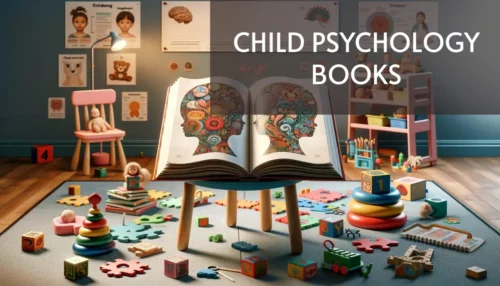
Child psychology is the study of a child’s behavior from birth to adolescence. In this analysis, the specialist will deal with the phenomena and irregularities of the child’s psychic development. This branch of psychology focuses on the evolution of the physical, motor, cognitive, perceptive, affective and social aspects.
Childhood is the most important stage of life, since it is the period in which the child develops his first attachments and social bonds, his personality, his self-esteem, his resources… in short, childhood is the stage where the child forms an idea about himself, the world and the future, an idea that will remain stable during the adult stage and will be the basis of his psychological well-being.
One aspect of psychic development is the emergence, variation and improvement of psychic processes and qualities of children: perception, attention, imagination, memory, thought, language, feelings and primary forms of behavior direction. The psychic development is studied in the early and pre-school age, which is the age when the child’s personality begins to be promoted.
19) Clinical Psychology Books

Clinical psychology is a sub-discipline within psychology that studies all the elements involved in mental disorders and, more generally, mental health. Thus, clinical psychology carries out all the tasks of evaluation, diagnosis, prevention and therapeutic intervention in people with some kind of mental disorder or disadaptive behavior, with the purpose of restoring psychological balance and eliminating all suffering.
The clinical psychologist is a figure in full evolution. Psychology has been changing, growing and dividing into specialties. For this reason, it is sometimes complex to differentiate the (increasingly) branches of psychology. Clinical psychology is one of the specialties of psychology and is characterized by its focus on the mental health and psychological well-being of people.
Clinical psychology can be practiced in different contexts, however, the main areas remain clinical centers, mental health services and general hospitals. Moreover, clinical psychology is a profession that is continuously evolving, expanding its functions and areas of work.
20) Criminal Psychology Books

Criminal Psychology, like forensic sciences, has taken a significant rise in recent years. That is why the academic demand has also been increasing, especially in countries like Spain, Mexico and Argentina. It is a sub-discipline that over time has provided us with very valuable information about the psychological motives that lead a person to commit an illicit act.
Nowadays, psychology has become a fundamental discipline in the administration of justice. Its direct or indirect intervention in criminal proceedings is indispensable in the attention and treatment of crime or interpersonal and gender violence, as well as other personal rights conflicts.
Inside the multiple tasks that a criminal psychologist can carry out we can mention the following: the accomplishment of studies of the criminal personality whose purpose is to clarify the endogenous and exogenous psychological factors that led to the criminal behavior, to help the criminologist to establish the dangerousness of a subject, the offender profiling in the investigation agencies, to offer psychotherapeutic treatment to inmates, etc.
21) Dementia Books
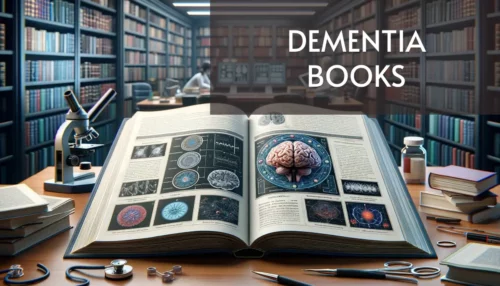
The notion of dementia refers to the disorder of the mind that appears in old age. It is an organic syndrome characterized by memory impairment, impaired judgment and abstract thinking, and personality alterations.
The adjective senile was formerly used because most sufferers develop dementia in old age, after the age of 65, and so dementia was seen as an inevitable part of aging. But it is now known that, although most people with dementia are over 65, thousands of sufferers are younger than that.
Memory loss is one of the most general symptoms of people suffering from dementia. However, a loss of memory does not mean that one has dementia. To be considered dementia, at least two problems in neuronal functions, such as memory loss and language difficulties, must be present.
22) Depression Books
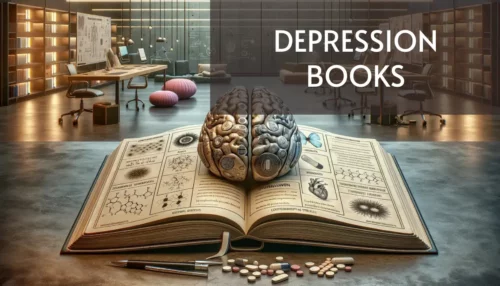
Depression is an emotional disorder that causes a feeling of constant sadness and a loss of interest in various activities. Also called «major depressive disorder» or «clinical depression», it affects a person’s feelings, thoughts and behavior, and can cause a variety of physical and emotional problems.
Depression can become chronic or recurrent and significantly impair performance at work or school and the ability to cope with daily life. In its most severe form, it can lead to suicide. If mild, it can be treated without medication, but when moderate or severe, medication and professional psychotherapy may be necessary.
It can affect anyone, of any economic level and at any age. Mental illnesses do not discriminate. They affect rich and poor, black and white, Hispanic/Latino and Asian, elderly and children.
23) Eating Disorder Books

Eating disorders are extreme manifestations of a variety of weight and eating concerns experienced by women and men. They include anorexia nervosa, bulimia nervosa and binge eating. These are all serious emotional problems that can have life-threatening consequences.
These eating behaviors can have a significant impact on the body’s ability to obtain adequate nutrition. Eating disorders can cause damage to the heart, digestive system, bones, teeth and mouth, and lead to other diseases.
The exact cause of eating disorders is unknown. Researchers believe that these conditions are caused by a complex interaction of factors, including genetic, biological, behavioral, psychological, and social factors. With treatment, healthier eating habits can be restored and, sometimes, serious complications caused by the eating disorder can be reversed.
24) Educational Psychology Books

Educational psychology is the discipline that studies the processes of teaching and learning in order to understand and improve them. It is in charge of analyzing and deepening the learning process in order to design and establish the ideal methods for students to develop their cognitive skills. As a result of the psychological study of the daily problems of education, principles, theories and procedures are set forth for the investigation and application of techniques that help to improve these processes.
It should be noted that educational psychology provides solutions for the development of curricula, educational management, educational models and cognitive sciences in general.
In order to understand the main characteristics of learning in childhood, adolescence, adulthood and old age, educational psychologists elaborate and apply different theories about human development, which are usually considered as stages of maturity.
25) Emotion Books

Emotion is defined as the set of organic responses that a person feels when reacting to some external stimulus that facilitates adaptation to a circumstance in relation to an individual, place, object, among others. They are characterized for being a disturbance of the state of mind for a short period of time but of greater impetus than a feeling.
In humans, the experience of an emotion generally involves a set of cognitions, attitudes and beliefs about the world, which we use to evaluate a particular situation and, therefore, influence the way in which the situation is perceived. Emotions, being affective states, indicate personal internal states, motivations, desires, needs and even goals.
Each individual experiences an emotion in a particular way, depending on their previous experiences, learning, character and the specific situation. Some of the physiological and behavioral reactions that trigger emotions are innate, while others may be acquired.
26) Environmental Psychology Books

Environmental psychology is in charge of analyzing the relationship between people and their environment. In this case, two types of environments are distinguished: natural and human-made. In other words, its theoretical field is interdisciplinary and focuses on behavioral and psychological variables.
Environmental psychology investigates aspects ranging from the effect of different environmental variables to the development of sustainable and environmentally friendly cities.
This discipline relates to ecology, urban planning, interior design, and architecture. All these areas of knowledge focus on emotions and behaviors and environmental psychologists study the connections between physical spaces and the human psyche.
27) General Psychology Books

Psychology is the science that studies in a theoretical and practical way the social, cultural and biological aspects that influence human behavior, both on an individual and social level, and the functioning and development of the human mind. It is becoming more and more common to see a psychologist for problems as frequent as depression, relationships, addictions, eating disorders, problems at work, and many other issues.
General psychology is a sub-discipline of psychology. It owes its name to the fact that it is dedicated to the study of mental functions common to all human beings. An important area of general psychology is cognitive psychology.
If you want to learn more about General Psychology here are our selections of free books and materials so that money is not an excuse.
28) Graphology Books

Graphology is the study of a person’s character and psychology through the features of their handwriting. Graphologist Sandra Cerro explains that eight different parameters must be taken into account: size, shape, inclination of the letter, inclination of the strokes, pressure, cohesion, speed and order.
With handwriting analysis, graphologists try to discover aspects of the personality that the person being analyzed does not want to show us, either because it does not suit them, because they are not aware of them or simply because they seem irrelevant.
The applications of graphology range from the field of psychology to the educational and judicial field, although it should not be confused with calligraphic expertise. One of the most important uses of graphology is in Human Resources departments to analyze candidates for a job.
29) Humanistic Psychology Books

The main characteristic of humanistic psychology is to consider the human being as a whole, knowing that there are multiple factors that intervene in mental health, in his personal growth and in his self-realization. Among them converge and interrelate aspects such as emotions, body, feelings, behavior, thoughts, etc.
The humanistic current is based on a series of principles that are not shared by other approaches or psychological theories. To understand humanist psychology, one must know the context in which it is framed, which is none other than the human being as an individual.
We are not mistaken if we say that this approach, this theoretical and practical perspective is one of the most remarkable psychological currents today. It is a legacy that is worth knowing and that can undoubtedly provide us with valuable tools.
30) Language Disorders Books
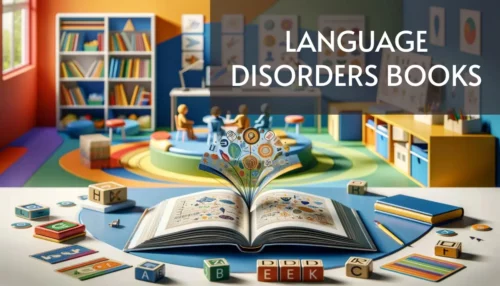
Language disorders are disorders that make it difficult to communicate orally, both to speak and to understand what other people say.
Language disorders are usually developmentally related. They begin in childhood and continue into adulthood. They can also be caused by brain injury or disease.
Children with language disorders often use short or simple sentences, confuse word order, or say “um” a lot. These challenges can cause problems at home, at school, and with other children. They may have problems with written language, spoken language, or both.
31) Logotherapy Books

Logotherapy is a variant of psychotherapy that revolves around presenting the concept of the will to meaning as man’s primary motivation. According to experts, it is the third Viennese school in the field of psychology, after the psychoanalysis promoted by Sigmund Freud and the individual psychology developed by Alfred Adler.
Logotherapy makes excellent use of Psychodrama, a dramatization performed by the patient, thinking that his life is ending at that precise moment. This dramatization gives rise to statements usually known as “what I would change if I had a second chance”.
Logotherapy is a school of hope, and psychotherapy of humanism that starts from the realism of one’s life as an experience in which suffering is inevitable.
32) Manipulation Books

Manipulation is the action and effect of manipulating (operating with the hands or with an instrument, manipulating something, intervening with skillful means to distort reality in the service of particular interests). At the social level, manipulation can be used in various spheres, in the family, school, religion, economy, or politics.
Manipulation can be of a mental or ideological type when it is a matter of influencing the thinking or decisions of one or more people. Mental manipulation is associated with taking control of the behavior of an individual or group through persuasion techniques or psychological pressure.
When this type of manipulation is carried out, the person loses or is distorted in his or her capacity to reflect. This means that whoever manipulates the individual manages to influence thought, sometimes permanently.
33) Mental Disorders Books

Mental health refers to the balance that must exist between the emotional, cognitive and behavioral state of an individual, so that they can relate harmoniously with their environment and with themselves. Mental health has many alterations that are known as mental illnesses or disorders.
These illnesses affect affective and cognitive processes, mood, thinking and behavior. A mental health problem becomes a mental illness when the symptoms and signs remain, causing stress to the patient and preventing them from functioning normally.
There is no single cause or reason for the onset of a mental illness in a person. In fact, there are a number of factors that come together in three categories: biological, psychological and social.
34) Mental Health Books

Mental health is a state of psychological and emotional well-being that allows the subject to use their mental, social and emotional capacities to perform successfully in everyday interactions. It also addresses the prevention of any alteration, disorder or mental illness and its care from a biopsychosocial perspective.
Mental illness is an alteration of an emotional, cognitive or behavioral type in which basic psychological processes such as emotion, motivation, cognition, consciousness, behavior, perception, language, etc. are affected and which makes it difficult for the person to adapt to the cultural and social environment.
There are conditions that affect the perception of reality and can become dangerous for people who suffer from them, so it is essential to contact a mental health professional to conduct a thorough examination and tell us what the diagnosis is.
35) Neuropsychology Books
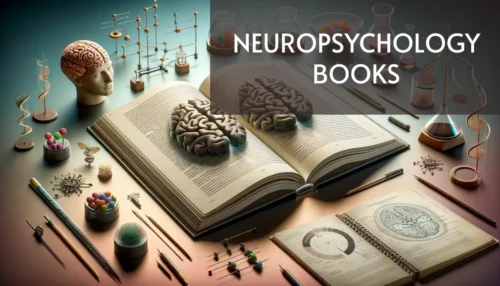
Neuropsychology is a neuroscience that deals with the relationship between brain structures and human behavior. It studies both healthy people and those who suffer brain damage. Some of the areas in which it works are: Acquired Brain Damage, Dementias, Neurodegenerative Diseases, Learning Difficulties, Research…
The neuropsychologist performs an evaluation of cognitive abilities (attention, language, memory, perception, executive functions and emotion) and their components. To find out which specific aspects are failing and which are doing well.
After this evaluation, the neuropsychologist proposes a rehabilitation program to work on the improvement of those aspects that have been damaged or have not developed to the levels expected for the age.
36) NLP Books

Neurolinguistic Programming is a discipline that tries to explain how our brain works and define its mental patterns, making it easier for us to understand ourselves and allowing us to change them using certain techniques in order to optimize our communication skills.
NLP uses behavioral and communication techniques and strategies to make it easier for people to change their thoughts and actions in favor of others that give better results and success. It helps to “reprogram” our brain to overcome our blockages and anxieties.
This instrument allows us not only to become the one we could be if we made the most of our abilities, but also the one we wish to be by reinterpreting the information that comes to us from outside, that is, giving a different meaning to certain events that have been powerfully marking us. throughout our existence.
37) Occupational Psychology Books

For all readers who wish to expand their knowledge of the factors that apply in the workplace, we have created a selection of free books on occupational psychology in PDF format.
Also known as organizational psychology, occupational psychology seeks to understand in detail the prominent factors influencing employee behavior in the work environment.
This discipline aims to enhance teamwork by optimizing the work environment holistically and strengthening professional relationships to ensure employee well-being. You can learn all of this in detail in our texts.
38) OCD Books

Obsessive-compulsive disorder, commonly known as OCD, is a mental disorder characterized by the presence of distressing thoughts (obsessions) and recurrent and stereotyped behaviors (compulsions) persistently over time, causing anxiety and impairment of daily life.
These repetitive behaviors are intended to prevent or reduce anxiety or prevent something bad from happening, although they have no connection to the action they are trying to prevent or are clearly excessive.
OCD usually begins to manifest during childhood or adolescence. Its evolution is usually progressive, although it can also appear suddenly due to stress or a specific event that acts as a trigger.
39) Organizational Psychology Books

Organizational psychology, together with clinical psychology and education, are the main pillars that propagate the study of the nature of temperament, character, personality and idiosyncrasy of human beings in the different spheres that make up organizations.
This branch of psychology is focused on the study of human behavior in the workplace, and is responsible for looking after the interests of both employees and institutions or organizations, as well as enhancing the performance and productivity of employees through innovative strategies, motivations and incentives, with the aim of promoting personal development and professional growth of each employee.
The objective of the psychologists specialized in this branch is to know how an individual affects the rest and the organization in general, and how this affects the behavior of each one of the individuals.
40) Positive Psychology Books

This time, we have put together a comprehensive selection of positive psychology books to enhance your understanding of this relevant and important topic.
This type of psychology focuses on the individual characteristics of people, as well as the factors that have allowed them to experience positive experiences.
Discover this fascinating world with the help of positive psychology books and materials, where you can find professional and explanatory content.
41) Psychoanalysis Books

Psychoanalysis is a therapeutic practice founded by the Austrian neurologist Sigmund Freud at the end of the 19th century when he sought a clinical treatment for neurotic or hysterical patients.
Psychoanalytic doctrine holds that instinctual impulses repressed by consciousness remain in the unconscious and affect the subject. It is important to note that the unconscious is not observable by the patient: it is the psychoanalyst who must make these unconscious conflicts accessible through the interpretation of dreams and failed acts and free association.
According to Freud, free association was the fundamental rule of psychoanalysis; it is a technique that consists in the patient expressing, during therapy sessions, all their ideas, emotions, thoughts and images as they are presented to them, without restrictions or orderings. Faced with this openness, the psychoanalyst must determine which things, within these manifestations, reflect an unconscious conflict.
42) Psychology Books for Beginners

Psychology being the study of the psyche and the different processes that occur in it, we can mention the usefulness of this science, in terms of: making a classification of each of the mental and behavioral phenomena of individuals, explaining the phenomena and processes of the psyche, predicting behavior, controlling mental phenomena.
When we think of a psychologist, we usually think of a person taking notes with a patient across the table. However, their functions are much broader. Broadly speaking, psychology develops its activity in three areas: Educational Psychology, Clinical or Health Psychology and Social and Organizational Psychology.
Seeing a psychologist is becoming more and more common for problems as frequent as depression, relationships, addictions, eating disorders, problems at work and many other issues.
43) Schizophrenia Books

Schizophrenia is a chronic and severe mental disorder characterized by alterations in thinking, perception of reality and behavior. It affects approximately 1% of the population and the first symptoms usually appear in adolescence or young adulthood.
People with schizophrenia may have delusions, hallucinations, disorganized language or behavior, and impaired cognitive ability. They may hear voices or see things that are not there. They may think that other people are reading their minds, controlling their thoughts, or trying to harm them.
People with schizophrenia are often unaware that their difficulties are due to a mental disorder that requires medical attention. Therefore, it is often family members or friends who must get them help.
44) Social Psychology Books

Social psychology could be defined as the study of the interaction of human beings, especially in groups and social situations, and highlights the influence of social situations on human behavior. More specifically, social psychology focuses on the scientific study of how people’s thoughts, feelings, and behaviors are influenced by the real, imagined, or implied presence of other people. Gordon Allport.
Social Psychology is also defined as the science that studies social phenomena and tries to discover the laws that govern coexistence. It investigates social organizations and tries to establish the patterns of behavior of individuals in groups, the roles they play and all the situations that influence their behavior.
If you want to learn more about this exciting branch of Psychology here are our selections of free books and materials.
45) Sport Psychology Books

Sports psychology is a branch of psychology that is gaining more and more relevance due to its great contribution to the achievement of athletes‘ goals. Having a psychologist to help from your field can mean in many cases the difference between reaching a goal or staying on the road.
Sports psychology studies how, why and under what conditions athletes, coaches and spectators behave the way they do as well as investigating the mutual influence between physical activity and participation in sport and psychophysical well-being, health and personal development.
There is no country in the world where some kind of sport is not practiced. Thousands of articles have been written about the benefits of practicing sport, whether amateur or professional, and how this regular practice is related to both physical and mental health.


